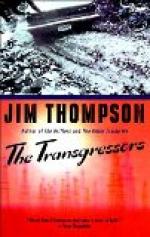If the men and women of Wilkes-Barre can be made to sanction the union of Trueman and Ethel Purdy, is there any reason to doubt that the question of social inequalities can be settled without bloodshed? Trueman determines to venture his election, his future, his life, to win the greatest triumph of his career, a wife whom the world despises as the favorite of fatuous fortune.
With a voice vibrant with emotion he addresses the multitude. Now by subtle argument, now by impassioned appeal he pictures the conditions that made Ethel’s life so utterly different from theirs; how it was impossible for her to sympathize with them when she had known no sorrow, when her every wish had always been gratified. He pictures her as she appears before them; a daughter whose father has been stricken, as if by a blow from Heaven; a woman left friendless; for the friends of prosperity are never those of adversity. Thus he awakens a feeling of pity in the hearts of the people for the woman they have so recently reviled. Pity gives place to love as he tells them that Ethel Purdy wishes to give to the citizens of Wilkes-Barre the millions that her father has hoarded; when he concludes by telling them that she is to become his wife, an acclaim of rejoicing is given.
The priest, this time without reluctance, pronounces Harvey Trueman and Ethel Purdy man and wife.
“Go to your homes, my good brothers and sisters,” Trueman counsels, “for to-morrow you enter upon your inheritance through the speedy channel of voluntary restoration; you are blessed of all men and women, perhaps, because you have long been the most grievously sinned against.
“Let no one commit an act of violence. It is from you that the country is to take its signal; you have curbed the hand of anarchy. What you have done will strengthen others to be patient. No one will have to wait longer than the next election to have wrongs set right.”
The silence that awe induces takes possession of the people. They disperse quietly to their homes. At two o’clock there is no one on the streets.
The Coal and Iron Police, who have been lost in the mountains, enter the town at that hour to find it, to all appearances, deserted.
Harvey and Ethel accompany the priest to the parish house, where they remain for the night.
All the events of the afternoon and night have been telegraphed abroad. When morning dawns the people of the country and the world at large read of the uprising of the miners of Wilkes-Barre, of the attempt to wreck the train bearing the militia; of the rescue by Sister Martha at the sacrifice of her life; the stirring scene at the palace and the final obsequies and marriage ceremonial. All are known to the world. In the chaotic state of the public mind, this example of reasonable action is needed. Spread by the power of the pen, it wins man’s greatest victory, a victory of peace.




